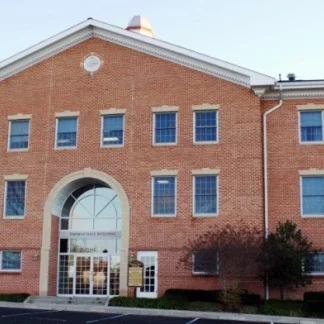TRW Associates
TRW Associates is a private rehab located in Bel Air, Maryland. TRW Associates s...
Harford County Health Department provides an array of outpatient treatment and support services for persons suffering from a mental illness, substance use disorder or addiction. Harford County Health Department is a multifaceted program that strives to meet the ever-changing behavioral health needs of the community.
Contact us for more information: (410) 879-2340

Connect with Harford County Health Department by calling their admissions team directly.
(410) 879-2340 Website Get DirectionsThe Commission on Accreditation of Rehabilitation Facilities (CARF) is a non-profit organization that specifically accredits rehab organizations. Founded in 1966, CARF's, mission is to help service providers like rehab facilities maintain high standards of care.
CARF Accreditation: Yes
Family therapy/services help family members improve communication and resolve conflicts. Family therapy/services include the family members or loved ones for which the client consented. Family sessions can teach skills to deepen family connections and assist the family with getting through stressful times. Family members are encouraged to participate in educational services within the Division and the community.
Group is modality in which a counselor works with several people at the same time. Group is utilized as a modality of change by developing, exploring and examining interpersonal relationships within the group. Clients may find relief when hearing others discuss what they are going through and realize they are not alone. Clients may see how other people tackle problems and have made positive changes; clients may discover a whole range of strategies for facing their own concerns, Group sessions encourage clients to put their own problems in perspective.
Individual (sometimes called "therapy", "psychotherapy" or "counseling") is a process in which clients work one-on-one with a trained counselor, in a safe, caring, and confidential environment, to explore their feelings, beliefs, or behaviors, to work through challenging or influential memories, to identity aspects of their lives that they would like to change, to better understand themselves and others, to set personal goals, and to work toward desired change. individual sessions generally run about 50-60.
Trauma informed care is a realization of the impact of trauma. Trauma informed care is the utilization of appropriate evidenced based, trauma based treatment approaches. Trauma informed care is the ability to recognize the signs and symptoms of trauma. Trauma informed care incorporates trauma based best practices into policies and procedures. Trauma informed care endeavors to prevent re-traumatization.
Group is modality in which a counselor works with several people at the same time. Group is utilized as a modality of change by developing, exploring and examining interpersonal relationships within the group. Clients may find relief when hearing others discuss what they are going through and realize they are not alone. Clients may see how other people tackle problems and have made positive changes; clients may discover a whole range of strategies for facing their own concerns, Group sessions encourage clients to put their own problems in perspective.
Individual (sometimes called "therapy", "psychotherapy" or "counseling") is a process in which clients work one-on-one with a trained counselor, in a safe, caring, and confidential environment, to explore their feelings, beliefs, or behaviors, to work through challenging or influential memories, to identity aspects of their lives that they would like to change, to better understand themselves and others, to set personal goals, and to work toward desired change. individual sessions generally run about 50-60.
Trauma informed care is a realization of the impact of trauma. Trauma informed care is the utilization of appropriate evidenced based, trauma based treatment approaches. Trauma informed care is the ability to recognize the signs and symptoms of trauma. Trauma informed care incorporates trauma based best practices into policies and procedures. Trauma informed care endeavors to prevent re-traumatization.
Individual (sometimes called "therapy", "psychotherapy" or "counseling") is a process in which clients work one-on-one with a trained counselor, in a safe, caring, and confidential environment, to explore their feelings, beliefs, or behaviors, to work through challenging or influential memories, to identity aspects of their lives that they would like to change, to better understand themselves and others, to set personal goals, and to work toward desired change. individual sessions generally run about 50-60.
Trauma informed care is a realization of the impact of trauma. Trauma informed care is the utilization of appropriate evidenced based, trauma based treatment approaches. Trauma informed care is the ability to recognize the signs and symptoms of trauma. Trauma informed care incorporates trauma based best practices into policies and procedures. Trauma informed care endeavors to prevent re-traumatization.
Trauma informed care is a realization of the impact of trauma. Trauma informed care is the utilization of appropriate evidenced based, trauma based treatment approaches. Trauma informed care is the ability to recognize the signs and symptoms of trauma. Trauma informed care incorporates trauma based best practices into policies and procedures. Trauma informed care endeavors to prevent re-traumatization.
TRW Associates is a private rehab located in Bel Air, Maryland. TRW Associates s...
Harford Counseling is a private rehab located in Bel Air, MD. Harford Counseling...
Mann House is a non-profit rehab located in Bel Air, Maryland. Mann House specia...
Maryland Recovery is a co-occurring mental health and substance abuse rehab faci...